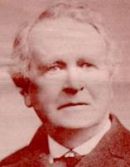The object we have in view by the repetition of the medicine, viz., the increase of its power, could not in most cases, though it might in some, be gained by giving a much larger dose at once, for I have shown that, with regard to most medicines, the effects of a larger dose are totally different from those of a small one; the former giving rise to the irritant or chemical effects of the medicine, the latter acting specifically, and as it is this specific action alone we wish to increase in the treatment of diseases, we can only effect it by repeating the medicinal dose with more or less frequency.
A great deal of needless fear prevails among some homoeopathic practitioners with respect to destroying the effect of the first dose by repeating the remedy. This fear was undoubtedly first raised by Hahnemann himself, who spoke strongly of the bad effects that must inevitably result if the medicine were repeated before it had exhausted its action; but though by advice and practice he subsequently recommended a very frequent repetition of the medicine, some of his disciples have proved more Hahnemannian than Hahnemann himself, and have continued, long after his disavowal, to maintain the injuriousness of repeating the medicine within ten, twenty, thirty, or sixty days. The most notable of these repetition-dreaders is Boenninghausen, who years, after Hahnemann’s adoption of the frequent repetitions of medicine, and in the face of two cases which he details from Hahnemann’s practice, where repetitions were practised, refers back to Hahnemann’s injunctions against repetition as being the ne plus ultra of the Hahnemannian system of treatment. (N. Archiv, i. 1, 95 et seq.) If the medicine be given once a day, in the majority of chronic diseases, I believe no accidents will occur that can be traceable to too frequent repetition, and I further believe that by this plan the good service that it is in the power of the remedy to render will be sooner effected, than if we give the dose less frequently. In acute diseases, I have never yet met with any disagreeable effects from giving the remedy at the exacerbation-periods previously alluded to, and though we do undoubtedly find that our medicine sometimes acts too violently, the amount of it given, more than the frequency of its repetition, will be found to be at fault.

